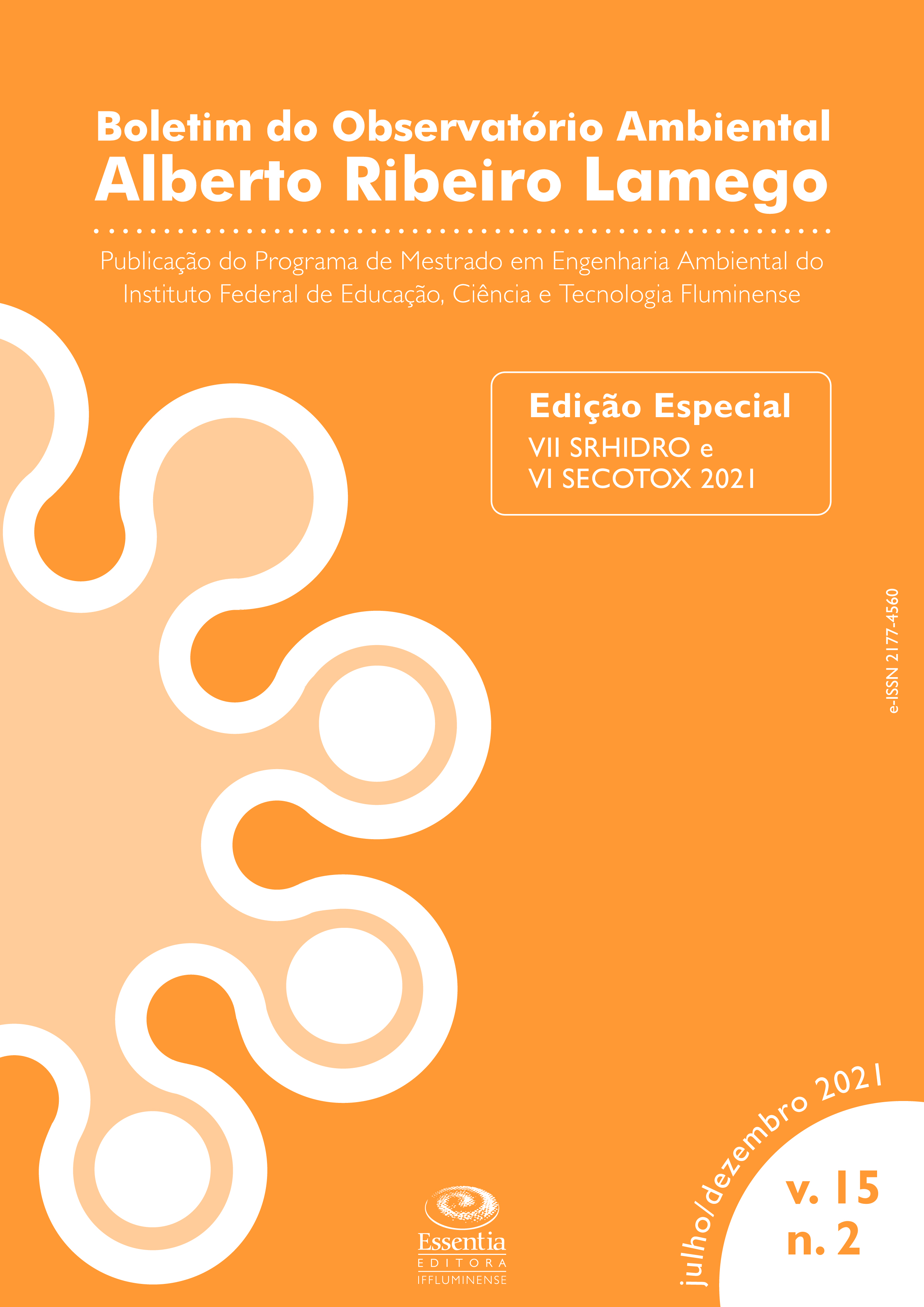Application of PROKNOW-C for bibliographic portfolio selection and bibliometric analysis on rainwater harvesting for non-potable purposes
DOI:
https://doi.org/10.19180/2177-4560.v15n22021p48-59Keywords:
Rainwater harvesting, Alternative water source, Potable water savings, Bibliometrics, ProKnow-CAbstract
This research aimed to define a Bibliographic Portfolio (BP) related to the capture and use of rainwater, through the ProKnow-C methodology, performing bibliometric and systemic analysis of the literature. It is a method developed by researchers at LabMCDA-UFSC, which proposes the researcher to form a BP based on a topic of interest, in line with their research. To reach the objective, six sets of terms and words were formed, through variations of the research axes: Project; Construction; Sustainability; Water resources; Rainwater harvesting and water management, using the logical operators AND & OR to be consulted in English in the Scopus and Web of Science (WoS) databases. The filtering process resulted in a portfolio of 22 articles. The results obtained were: (i) Água (Switzerland) as the most prominent periodical; (ii) GHISI, Enedir as the author with the highest number of publications and (iii) BUTLER, David; MEMON, Fayyaz Ali and WARD, Sarah as the most cited authors. From the BP, it identifies the author with the largest number of articles, Enedir GHISI, is Brazilian and coordinates some relevant research on the subject at the Federal University of Santa Catarina.Downloads
References
CAMPISANO, Alberto et al. Urban rainwater harvesting systems: Research, implementation and future perspectives. Water research, v. 115, p. 195-209, 2017..
Grupo de trabalho da sociedade civil para a Agenda 2030. V Relatório Luz da
Sociedade civil da Agenda 2030 de desenvolvimento sustentável BRASIL.
Disponível em https://gtagenda2030.org.br/relatorio-luz/relatorio-luz-2021/ Acesso em 18/09/2021
SILVA, Enid Rocha Andrade da. Agenda 2030: ODS-Metas nacionais dos objetivos de desenvolvimento sustentável. 2018.
LACERDA, Rogério Tadeu de Oliveira; ENSSLIN, Leonardo; ENSSLIN, Sandra Rolim. Uma análise bibliométrica da literatura sobre estratégia e avaliação de desempenho. Gestão & Produção, v. 19, p. 59-78, 2012.
TESTON, Andrea et al. Rainwater harvesting in buildings in Brazil: A literature review. Water, v. 10, n. 4, p. 471, 2018.
TOMAZ, P. Aproveitamento de água de chuva para áreas urbanas e fins não potáveis: 1. ed. São Paulo: Navegar Editora, 2003. 180 p.
TURNER, A. Managing Drought: learning from Australia. Universidade de Tecnologia de Sydney Pacific Institute. 2016. Disponível em: https://pacinst.org/publication/managing-drought-learning-from-australia/. Acesso em: 02 set. 2020.
Downloads
Published
Issue
Section
License
The authors of the manuscript submitted to Boletim do Observatório Ambiental Alberto Ribeiro Lamego, hereby represented by the corresponding author, agree to the following terms:
The authors retain the copyright and grant Boletim do Observatório Ambiental Alberto Ribeiro Lamego the right of first publication.
At the same time the work is licensed under the Creative Commons Attribution 4.0 International License, allowing third parties to copy and redistribute the material in any medium or format and to remix, transform, and build upon its content for any legal purpose, even commercially, provided the original work is properly cited.
Authors will not receive any material reward for the manuscript and Essentia Editora will make it available online in Open Access mode, through its own system or other databases.
Authors are authorized to enter into additional contracts separately for non-exclusive distribution of the version of the work published in Boletim do Observatório Ambiental Alberto Ribeiro Lamego (eg, publish in institutional repository or as book chapter), with acknowledgment of authorship and initial publication in this journal.
Authors are permitted and encouraged to publish and distribute their work online (eg, in institutional repositories or on their personal page) at any point after the first publication of the article by Boletim do Observatório Ambiental Alberto Ribeiro Lamego.
Essentia Editora may make normative, orthographic and grammatical changes in the originals in order to maintain the standard language, with the final consent of the authors.
The content and opinions expressed in the manuscript are the sole responsibility of the author (s).










1.png)





